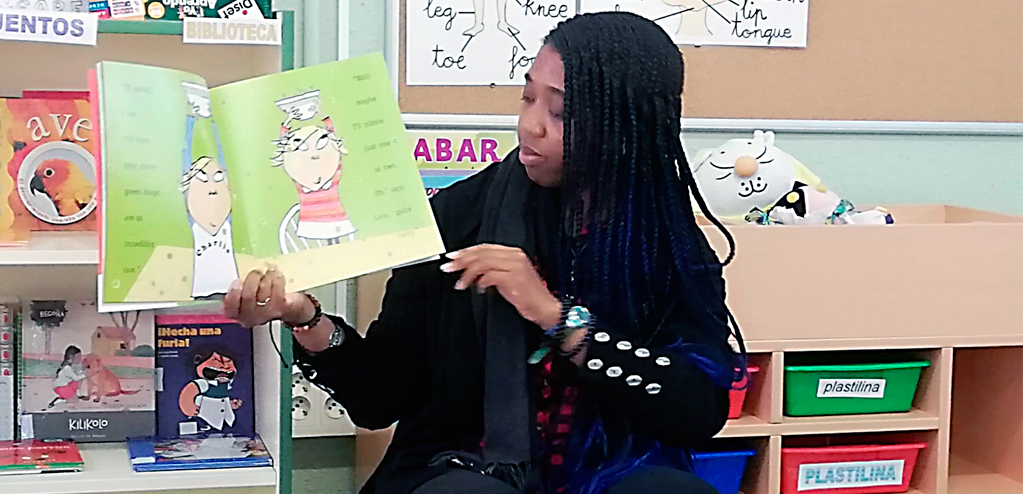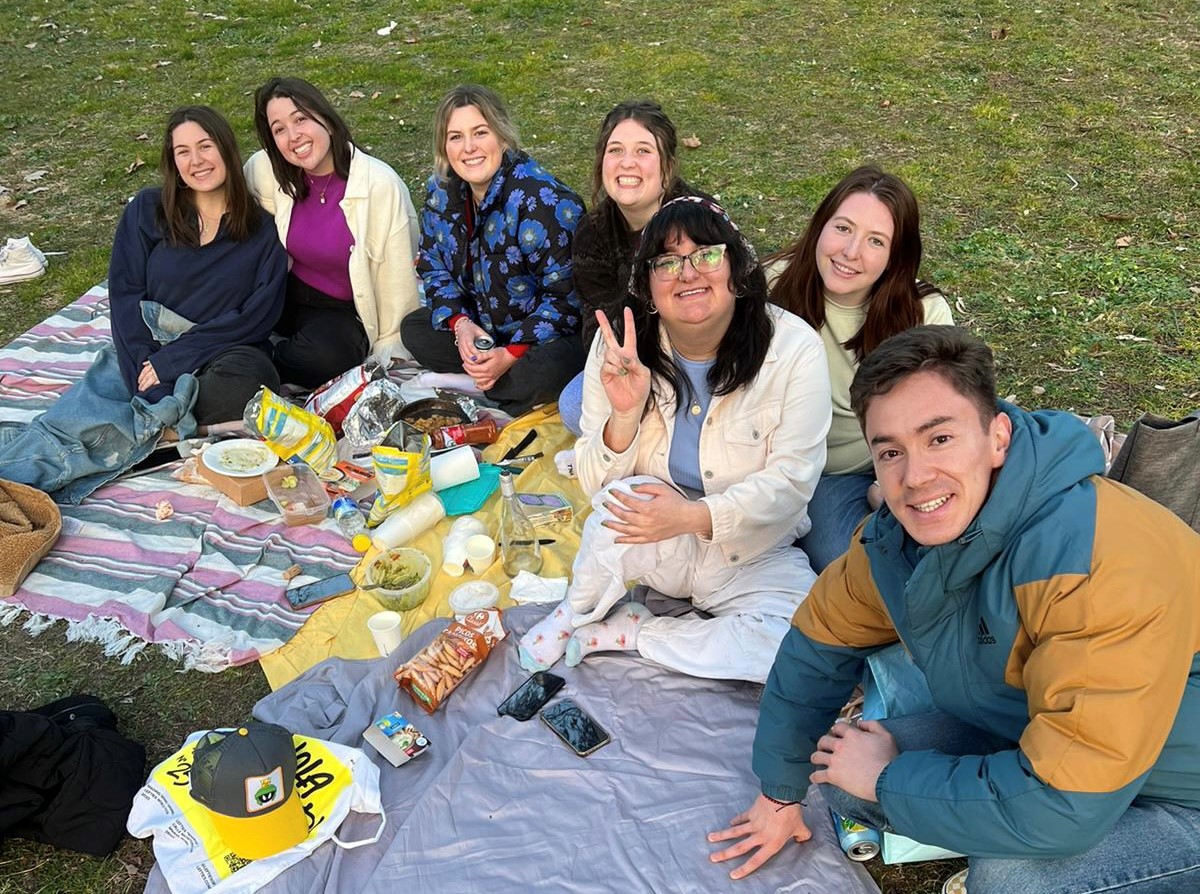By Kiersten B., Auxiliar de Conversación in Murcia 19/20.
My experience as an Auxiliar de Conversación in Spain
Being an Auxiliary is one of the simplest yet most rewarding experiences you can do. Your main role is to make the learning process fun and engaging. You don’t need to grade papers neither do you need to create elaborate lessons plans. The most important thing is to connect with the students to help them speak and understand the English language. And the easiest way to do that is through learning games.
(If you want to know more about the role of an Auxiliar de Conversación with ConversaSpain check this post.)
However, if you are coming into this position with little or no teaching experience, it can be intimidating to step into a classroom with more than 20 children using a mixture of Spanish and English when speaking to you. If you search online, there are hundreds upon hundreds of classroom games you can use with your students in your ESL Class. But here is a simplified list of five must have games for the ESL classroom. And the best part is that these games require little to no materials; just good imagination and enthusiasm.
Before you dive into implementing these ESL games, you should know the following.
Frist of all, take a few days to observe the children you collaborate with to see what ESL classroom games they are already familiar with. Also, talk with your lead teachers, and ask them what the children are interested in. This way it will be easier to find a game that will resonate with the children. For example, if you have a shy group of kids, then maybe a game of charades isn’t the best game to start off with. Keep in mind that everyone’s classroom role looks different, so communication with the teachers is essential. In some of the classrooms I worked in, we would spend the beginning or the majority of the class playing learning games associated with the lesson. In other classes, the teacher would teach for the first half and then I would get the last 20 minutes or so to play games with either the entire classroom or small groups.
Either way it’s important to have a few ESL games ready for when you need them:
-
The Invisible Man:
Say the children have just learned some new vocabulary words and you are looking for a way to reinforce what they just learned. This game is simple enough to be played with 1st and 2nd graders, but can be used for older students as well. If you’ve played hangman before, the rules are very similar. You think of a word related to the lesson. Then, without telling the students, you draw lines for the numbers of the letters in that word. Lastly, you draw a stick figure of man. You can draw as many details as you want, but a simple stick figure with a head, body, two arms and two legs will do. The students then guess a letter and if they guess it right, you write the letter in the space of the word exactly like hang man). If they guess it wrong, then you erase a body part. The object is to guess the correct word before the man is erased or becomes “invisible”.
-
Freeze Dance Spelling Bee:
This is a fun game that requires a little bit of space in the classroom and some fun kids’ songs. You start by playing music for the children to dance and when the music stops, the students must freeze, or not move. Very similar to the game freeze dance that most children around the world are familiar with. The difference is, if you spot someone that moves after the music has stopped, then that person has to spell out a vocabulary word, usually a word from the lesson or previous lessons. Depending on the availability of resources, you can have the children write out the word on the board or you can have them spell it orally. This can also be used in Math or Natural Sciences. Instead of spelling out a word, they can solve a math problem or answer a natural science question.
-
Word Scramble:

-
Two Truths and a Lie:
This is a game for slightly older children, such as 5th grade and above, and can be used as a great ice breaker. In addition, this is a great way to have the children practice their speaking skills. This is a great game that can be done in small groups but it can also be done with the entire class. You can start by giving an example, where you tell the students three facts about yourself, except two of them will be true and one of them will be a lie. The children then have to guess which fact is the lie. This is a great way to learn more about your students.
-
Verb Conjuration Race:
This is a fun way to practice grammar and can be done with older students. You can write a list of verbs on the board or have the children write a list of verbs on a piece of paper. Depending on the number of verbs, you can give the students an allotted time to see if they can finish the task before that time. When you instruct the students to start, their goal is to conjugate all the verbs. Depending on their level, you can do simple past, present perfect, irregular verbs, etc. The person who conjugates the verbs the fastest, wins.
-
Bonus Game, Telephone:
This is a great game to play if you ended a lesson earlier than expected or find yourself with some extra time. Depending on the size of the class, you’ll most likely want to divide the class in half, and have each half create a line. You will start by thinking of an English phrase, sentence or tongue twister. You whisper the phrase to the person standing at the beginning of the two lines. The students then have to continue whispering the same phrase to the person next to them, until the message travels to the end of the line. The person at the end of the line has to say the phrase out loud. If the phrase is said correctly, that team wins.
These are ESL games I have played with my students, but remember that every child and classroom is different. Some children will instantly love these games, and others may not. The key is to have a positive attitude and keep trying until you find the game that everyone loves.
If you want to know more ESL lessons and ideas to get you started into Teaching English, check this post.







